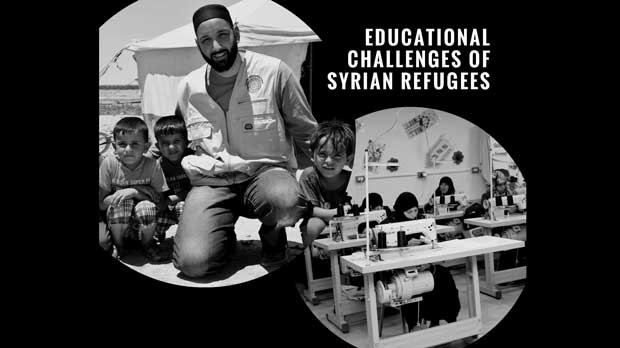In the past year or so, one of the hottest topics in America is Shari’ah. There are those who spend tremendous amounts of human and financial resources to create the fear that Shari’ah is about to cause “destruction of the national existence of the United States,” a force for “destroying Western civilization from within…” The fear of the man in the street about Shari’ah is understandable when politicians talk glibly about Shari’ah as “an infiltration … into all of our operating systems in our country as well as across Western civilization.” And now the presidential hopefuls make Shari’ah one of their top campaign issues. Gingrich, in a speech to the American Enterprise Institute in Washington, said Shari’ah is “a mortal threat to the survival of freedom in the United States and in the world as we know it.”
As a result of this propaganda and fear-mongering, many Americans are led to believe that American Muslims should not be trusted and that Islam does not belong in America. Shari’ah has become an ominous term and currently as many as two-dozen states have passed or proposed legislation to prohibit the application of Shari’ah. Those various laws aim to make talking openly about Shari’ah unlawful. Making wudhu (ablution) or offering salat (prayer) in a public place could result in being fined or jailed. This Islamophobic campaign raises serious questions and concerns that Muslims simply cannot ignore.
First, those who wave the red flag about “creeping shari’ah” know, or should know, that the Supremacy Clause of the U.S. Constitution establishes that the Constitution and all laws and treaties made pursuant to the Constitution shall be “the supreme law of the land.” Secondly, there are two clauses, referred to as the “religion clauses” in the First Amendment. The Establishment Clause states, “Congress shall make no law respecting an establishment of religion…” And the Free Exercise Clause adds, “… or prohibiting the free exercise [of religion] thereof…” According to these two clauses, Congress cannot establish a national religion and the government cannot act in any way which gives preference to one religion over another.
Those who propagate the nonsense that shari’ah is infiltrating all the operating systems in the U.S., are concerned, as is writer James Zumwalt, a retired Marine infantry office who now heads a security firm, that, “…our Constitution is under serious attack from a foreign body of law that seeks to erode its very foundation.” Yet they seem unconcerned with a very real danger: that state legislation which they promote — banning Shari’ah and the Islamic practices which are part and parcel of it — is in effect prohibiting the free exercise of religion. That is, without debate, an erosion of Constitutional rights and guarantees.
Many who fan the flames of fear and suspicion about Islam and Muslims forward the idea that Islam is a cult. As Muslims, we believe that Islam, surrender to God Almighty, is as old as humanity and it culminated 1400 years ago in the advent of Muhammad, peace be upon him. Allah SWT says in the Qur’an, “He (Allah) has ordained for you the same religion (Islam) which He ordained for Noah, and that which We have inspired in you (O Muhammad), and that which We ordained for Abraham, Moses, and Jesus, namely that you should establish religion and make no divisions in it. Intolerable for the disbelievers is that to which you (O Muhammad) call them. Allah chooses for Himself whom He wills, and guides unto Himself he who turns to Him in repentance and in obedience” (Qur’an 42:13).
Calling Islam a cult brings to mind associations of fanaticism and strangeness. Yet, today almost one out of five people, or 20% of the world population, belong to the Islamic faith. Describing Islam as a cult also suggests a rejecting of mainstream America and its tenets of citizenship. Muslims, however, have been living in the U.S. for decades as law-abiding citizens. If any Muslim American claims that he is not obligated to follow the U.S. Constitution, he is exposing his ignorance of Islam. Muslim scholars view citizenship as a covenant between the citizen and the state in which he resides. According to this view, the covenant guarantees the citizen’s security in the state and he or she, in turn, is obliged to obey the laws of the land. The Qur’an commands Muslims with regard to covenants: “And fulfill every covenant. Verily, you will be held accountable with regard to the covenants” (Qur’an, 17:34). Sheikh Salman al-Oudah, a Saudi scholar has written, “[Islamic] scholars have stated that those who enter non-Muslim countries have to adhere to their respective laws and regulations even if they entered those countries illegally; and they have no excuse for breaking those laws, since they were entrusted to abide by those laws upon entry into those countries…As long as [a Muslim] agrees to live in a non-Muslim country, he is never to rebel against the people living in his choice of residence, even it seems too hard for him to endure.”
Shari’ah is often equated by Islamophobes with the stoning of adulterers or cutting off the hands of thieves. But Shari’ah is the total and comprehensive system of deen (religion, way of life) with all the beliefs, rituals, and practices that relate to human existence; the fixed punishments are but one integral part of this system. In fact, of the 6,236 verses in the Qur’an, only 10 verses relate to the hudud punishments. These punishments are to be applied only after a genuine Islamic society has been established, one founded on Islamic principles so that the practice of religion and spirituality can flourish; so that the social, economic, and political environment is conducive to and protective of ethics and morals; and in which the survival needs of all citizens have been procured so that, for example, stealing out of necessity is no longer a motive for theft. There are many conditions stipulated for the application of a hudud punishment so as to avoid a strictly literalist applying of such punishments without regard to conditions and contexts and mitigating circumstances.
A prime example that demonstrates the suspension of hudud punishment in order to abide by the dictum of absolute justice is the time that the caliph Umar put a moratorium on the punishment for theft as there was a famine in the land. Another important point is that the fixed punishment is the last action in a process of seeking the best application of justice. In 2011 Sheikh Yusuf Al-Qaradawi was interviewed about the hudud on Al-Jazeera and mentioned an agreed-upon rule of fiqh — let doubt suspend hudud. Illustrating the caution with which a hudud punishment is to be applied is the hadith related by Hakim and As-Suyuti, “Refrain from enforcing hudud on Muslims as much as you can. If you find a way out for a Muslim, let him (or her) go, as it is better for the imam (ruler) to wrongly forgive than to wrongly punish.” Unfortunately, many of the punishments that are carried out in Muslim countries in the name of Shari’ah are in fact violations of the Shari’ah itself.
The word shari’ah as used in the Qur’an holds the meaning of a straight way or a path: “Then We put you on the (straight) Way of Religion: so follow that (Way) and follow not the desires of those who know not” (Qur’an 45:18). The root meaning of shari’ah is a watering place or a path to a watering place. Allah SWT alone is the source of truth and the only One who determines it as He alone has created the entire creation and the only One who knows its secrets. We as human beings may exercise our intellects to their fullest capacity, but without His Guidance, we will overlook and misunderstand much, as we are very limited by our human and individual capacities as well as by the conditions of our environment. On the other hand, Allah SWT transcends time and space has the ultimate knowledge of all things. He says in the Qur’an, “Does He who created not know while He is the Subtle, the Acquainted?” (Qur’an 67:14). The truth has been communicated to us through His prophets and messengers and through revealed Scriptures: “Then We revealed the Book to you (O Muhammad!) with Truth, confirming the Book that was revealed before, and protecting and guarding over it. Judge, then, in the affairs of men in accordance with the Law that Allah has revealed, and do not follow their desires in disregard of the Truth which has come to you. For each of you We have appointed a Shari’ah and a way of life” (Qur’an 5:48).
So each nation has had prescribed for them a shari’ah, as Qatadah (RAA) has said, “The Taurah has its Shari’ah, the Injil has its Shari’ah and The Quran has its Shari’ah. Allah SWT makes whatever He wishes lawful and whatever He wishes unlawful as a test to see to obeys from the one who disobeys but the core of belief is one: Tawheed; the Oneness of Allah SWT.”
Shari’ah, therefore, can be defined as the totality of all the guidance and directives that Allah SWT has presented to humanity in the Qur’an or taught by the Messenger (peace be upon him) through his sayings and actions. The Shari’ah thus includes beliefs, ibadah (worship) injunctions, enumeration of traits of good character as well as those of sin and evil, and codifications relating to human interactions including inheritance, contracts, witnesses, marriage and divorce, food and drink, clothing, crime and punishment, banking and business dealings, and much more. Frank Griffel, professor of Islamic Studies at Yale, points out that Shari’ah goes beyond what most Americans would consider “legal discourse, for it extends to matters concerning proprieties of clothing, conduct between spouses, filial piety, behavior at funerals, and other questions that Westerners would treat not as legal, but as moral issues or mere etiquette.” Put simply, “all normative discussions within Islam” center around Shari’ah
Just as water is vital to sustain biological life, Shari‘ah is vital to sustain the human soul. It is the path that leads to the source of optimal nourishment — of human energy and spiritual life. Shari’ah is the straight path by which we aim for nearness to Allah SWT. It is the system of ethical, legal, social, and spiritual proprieties that Allah has provided so that human beings can live together in peace and honor their obligations to God, to society, and to each other. Shari’ah is also the inspiration by which we can end our silence and answer in the best ways those who promote hate, intolerance, or discrimination.
“Invite (all) to the Way of thy Lord with wisdom and beautiful preaching; and argue with them in ways that are best and most gracious: for thy Lord knows best who have strayed from His Path, and who receive guidance.“ (Qur’an 16:125).






